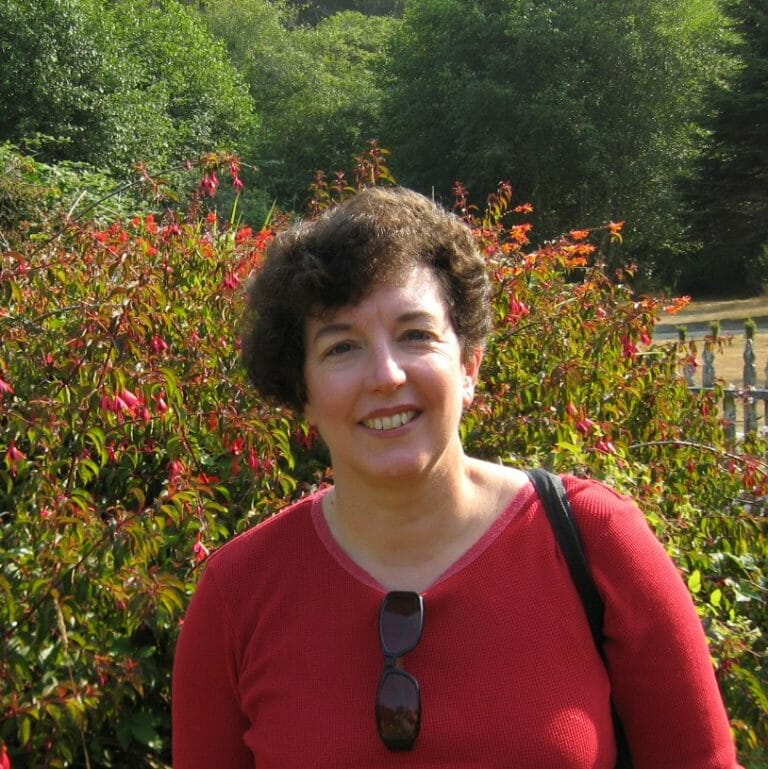
In this series, we’re sitting down with the Swette Center senior fellows to catch up on food systems, innovation, and what makes a good meal.
Read on for an interview with Pam Marrone, Executive Chairperson and Partner of Primary BioAg Innovations and Global BioAg Linkages.
How did you get interested in food systems issues?
I grew up in the Northeast, and there were caterpillars on my family’s property that came through and ate the forest. This led me to become fascinated in insects. I did some research and found out that the main way for controlling pests was through chemical pesticides. After that, I became intrigued in finding ways to develop natural pesticides. My father actually used Bt which was the first-ever biopesticide, and my mother also had me read lots of magazine articles on the subject. I was exposed to the study of pest management at a very young age, so it was no surprise that I wanted to become an entomologist that developed natural products within sustainable integrated pest management. I went to Cornell for my undergraduate degree and North Carolina University for my graduate and PhD in entomology. After my studies, I looked to start a career in developing natural products for controlling pests and increasing crop growth.
What has changed in food systems over your career?
There have been a lot of changes. When I first started my career, the organic industry was very small, but it has grown dramatically since then. The types of biological crop inputs that I’ve developed my whole career have become more mainstream. There is now tremendous regulatory pressure on pesticides. Consumers have also changed; they want more transparency in their food system. They want to know more about how their food is produced, and they value sustainability much more. Consumers are driving a lot of changes. That isn’t how it’s always been. Big agricultural companies used to just develop whatever products they wanted and consumers wouldn’t question it. That is completely different now.
What’s an innovation or development in the food systems world that you’re excited about?
There are so many innovations I’m excited about. There are a lot of amazing start-ups right now in food and agriculture. The trend toward more bio-intensive ecologically-based crop production and pest management is also exciting. This is a shift from chemical intensity and spraying pesticides and using chemical fertilizers all the time to understanding the ecological nature of the system and having a more holistic crop production system. Farmers are now focusing on how their practices and inputs affect soil health, the microbiome and carbon footprint. On the food side, there is an explosion of plant-based meats/alternative proteins and that trend is not going to go away any time soon since there is so much room for growth. Another innovation is controlled environment agriculture. It is a massive trend to put regional production indoors in a controlled environment. There are billions of dollars going into this by investors. Another exciting innovation is the idea of a digital farm, or a data-driven farm production system. Lastly, there is a lot of exciting tech innovation in both food and agriculture, like robots, AI, and digitization of the whole supply chain. It is an incredibly great time to be involved in food systems because of all the opportunities and innovation going on right now.
If there was something a new graduate of a food systems program should know, what would it be?
There is an urgent need to figure out how to feed the world more sustainably, and with that, there are tremendous opportunities for students right now within the private sector, non-governmental organizations, and the government. I would highly recommend that students get practical experience through internships to learn about all the different opportunities out there.
What is your favorite food and why?
Definitely chocolate and wine, and I always buy fair-trade and organic. After that, it would be Italian food.